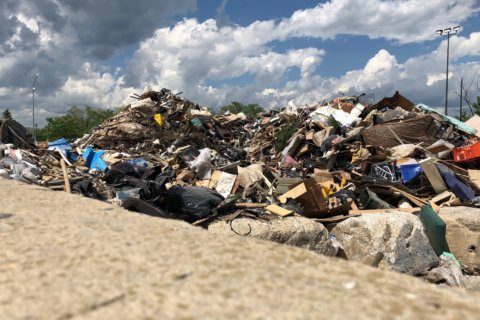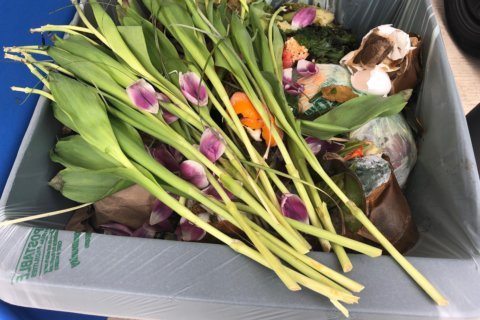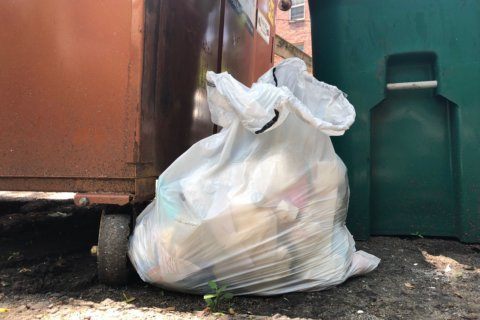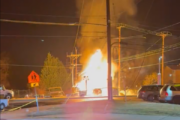What is recycling?
The United States Environmental Protection Agency defines recycling as “the process of collecting and processing materials that would otherwise be thrown away as trash and turning them into new products.”
How is recycling beneficial?
By reusing materials that would otherwise be thrown away, recycling cuts down on pollution by diverting trash from landfills and incinerators. The latest data, from 2015, show Americans produced 262.4 million tons of municipal solid waste that year and sent more than half of it (137 million tons) to the landfill. Recycling also helps to create jobs and supports the U.S. manufacturing industry.
What happens to my recycling?
Recycling that you take to the curb is collected and transferred to a materials recovery facility, where it’s sorted (plastic is separated from paper, which is separated from aluminum and glass), baled and sold to manufacturers. Items sent to the facility that aren’t recyclable are sent to the landfill or incinerator.
What materials are recyclable?
This varies, depending on where you live. In most municipalities, paper, cardboard, plastics, glass and aluminum are collected and recycled in curbside programs. Batteries, electronics, compact fluorescent light bulbs and food/organic yard waste are also recyclable, but require extra care (and often a trip to a specific drop-off center). If you’re not sure what your city/town collects, look it up before you toss something in the bin.
Are plastic bags recyclable?
Yes, plastic bags, including Ziploc bags that are clean and dry, are recyclable, but shouldn’t be recycled with other items in your curbside bin, since they cause problems with the machinery at the sorting facilities. Instead, recycle them at the grocery store; most have bins to collect bags.
Is Styrofoam recyclable?
In some parts of the country, Styrofoam is recyclable. However, many municipalities ban it from their programs, since it often leads to contamination problems at the sorting facility. And because Styrofoam doesn’t break down in the landfill, jurisdictions across the country, including D.C. and Montgomery County, Maryland, have banned businesses from using the material in the first place.
Do I need to clean materials before recycling them?
Yes. Washing out leftover peanut butter, oil, jelly and yogurt from your jars cuts down on contamination and makes the end product more valuable.
Can you recycle electronics?
Yes — but not in your household bin. Most municipalities have drop-off centers where residents can recycle old electronics.
Are straws recyclable?
The material that most plastic straws are made out of is recyclable, but many sorting centers do not accept straws because they are too small and flexible, and either fall through — or get caught in — the machinery.
Are hangers recyclable?
Wire hangers should not be thrown in the recycling bin. Experts in the field categorize them as “tanglers,” because they get caught up in the machinery at sorting centers. Most municipalities also do not accept plastic hangers, although you might want to check the rules where you live.
Additional resources
What’s accepted in curbside recycling programs varies, depending on where you live. And many counties offer drop-off locations for electronic waste, hazardous waste (paint and other chemicals) and hard-to-recycle household items. Check out the links below for your area:
- D.C.’s Zero Waste website offers a “What Goes Where” tool for residents.
- Montgomery County’s Department of Environmental Protection has a similar tool, plus an “A to Z” directory on how to dispose of everyday items.
- Fairfax County helps its residents distinguish what’s trash and what’s recycling.
- Arlington County’s “Where Does It Go?” helps with disposal decisions.
- Prince George’s County also has a list of acceptable items on its website.







